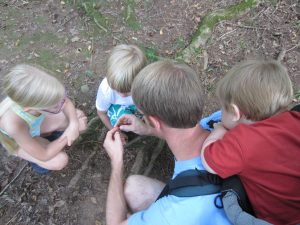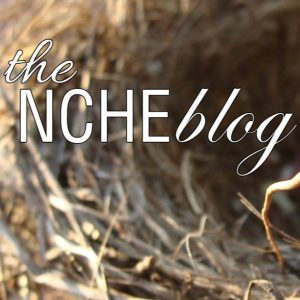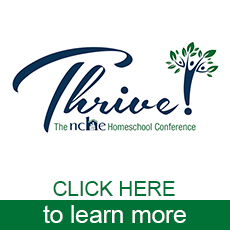 How would you answer the question, “What is a homeschooler?” For most of us, it would be pretty easy to answer. We would probably say that a homeschooler is a parent who teaches their kids at home. This seems so simple, but these days with public and private schools sending their students home to do their school, this gets muddy. Also, when you try to write a legal definition it becomes much more complicated. You run into questions such as: Can someone other than the parent be the homeschooler? Can someone other than the parent provide instruction? How much teaching does the parent have to do—one class, 50%, 100%? Can teaching be done outside the home?
How would you answer the question, “What is a homeschooler?” For most of us, it would be pretty easy to answer. We would probably say that a homeschooler is a parent who teaches their kids at home. This seems so simple, but these days with public and private schools sending their students home to do their school, this gets muddy. Also, when you try to write a legal definition it becomes much more complicated. You run into questions such as: Can someone other than the parent be the homeschooler? Can someone other than the parent provide instruction? How much teaching does the parent have to do—one class, 50%, 100%? Can teaching be done outside the home?
Homeschool laws are different in every state. Therefore the legal definition of a homeschool is different state by state. When we wrote the first definition of a homeschool back in 1988, it said “‘Home school’ means a nonpublic school in which one or more children of not more than two families or households receive academic instruction from parents or legal guardians, or a member of either household.” It never occurred to us back then that this would be interpreted to mean all academic instruction, that we could not do anything outside the home. Through the next 25 years, homeschoolers had to live with this interpretation. It meant that if our student took calculus from a tutor who provided the primary instruction, we had to hide it from the authorities. DNPE had a “don’t ask, don’t tell” policy back then. They really didn’t want to know if we were using an outside resource for academic instruction. This was a real problem for us, especially as we dealt with high school. My point in this is to show how important a legal definition is. We would have never thought that saying the parent provided academic instruction would have prevented us from getting any outside help.
In 2013, NCHE decided it was time to change the definition to fix this problem. We spent months working on a new definition. With every new iteration, we ran into problems. We finally landed on the current definition: “Home school means a nonpublic school consisting of the children of not more than two families or households, where the parents or legal guardians or members of either household determine the scope and sequence of academic instruction, provide academic instruction and determine additional sources of academic instruction.” We made it clear that a homeschool can use outside resources. This new definition passed every vote unanimously.
Since in NC this defines a homeschool, let’s break this down and look at what this really means.
“Home school means a nonpublic school…”
A nonpublic school (private school) is a school that is not governed by the State Board of Education or Department of Public Instruction and is not funded by government funds. In NC, we have a separate division to govern nonpublic schools, the Division of Non-Public Education. In the late 1970s, private school leaders, especially religious private school leaders, fought to create this division so that DPI could not dictate what was taught in private schools
“…consisting of the children of not more than two families or households…”
A homeschool can have children from two families, but not more than two families. If a school consists of more than two families’ children, it would need to file as a private school, not a homeschool. In a two family homeschool, one of the families would open a homeschool and add the children from the other family to their school.
“…where the parents or legal guardians or members of either household…”
The person opening a homeschool must fit one of these three categories.
“…determine the scope and sequence of academic instruction…”
A parent, legal guardian or someone living in the household must determine the scope and sequence of academic instruction. First, let’s define a scope and sequence. Scope refers to the breadth and depth of content and skills to be covered. Sequence refers to how these skills and content are ordered and presented to learners over time. A homeschool must decide what is taught and when it is taught. For example, if you send your child to a private school, that school determines what is taught and when it is taught, not the parent. There may be some room for the student making some choices, but it is the school that determines what has to be taken in order to graduate. If someone other than the homeschool parent, legal guardian or someone living in the household is determining what is taught and when it is taught or graduation requirements, this does not meet the NC definition of a homeschool.
“…provide academic instruction…”
A parent, legal guardian or someone living in the household must provide academic instruction. The word “academic” is significant here. Academic instruction has generally been defined as a subject that we would consider a core subject. Two previous NC Attorneys General interpreted academic instruction as core curriculum. The definition doesn’t say how much academic instruction the parent needs to provide, but it is clear that the parent needs to provide some. In other words, the parent cannot farm out all academic instruction and still be a homeschooler.
“…determine additional sources of academic instruction.”
The homeschooler has the freedom to determine additional sources of academic instruction. This makes it clear that a homeschool student can take advantage of other sources of academic instruction.
I hope this discussion of the legal definition of a homeschool has helped clarify your understanding. Within this definition, there is so much room for flexibility to homeschool in a way that best fits the needs of your family and students.
During this time of COVID19 with so many children learning at home with online or distance learning from their public or private schools, there has been confusion about what a homeschool is. NCHE wishes these parents the best as they deal with this unusual situation.
If you have any questions about what it means to homeschool, please leave a comment.
– Debbie Mason, July 3, 2020




